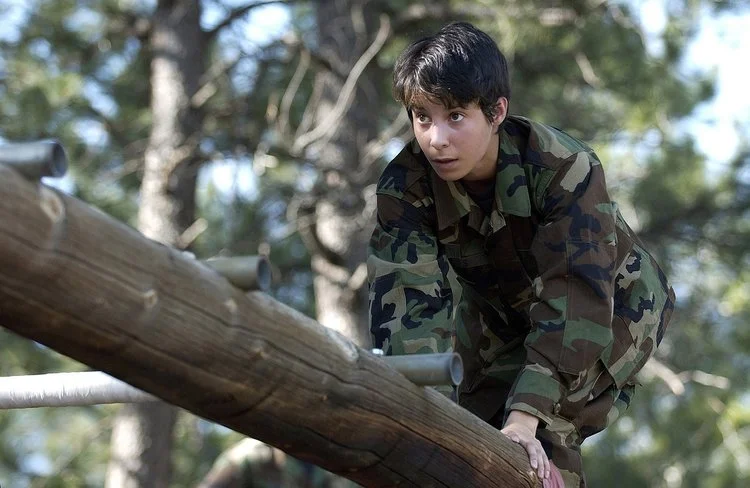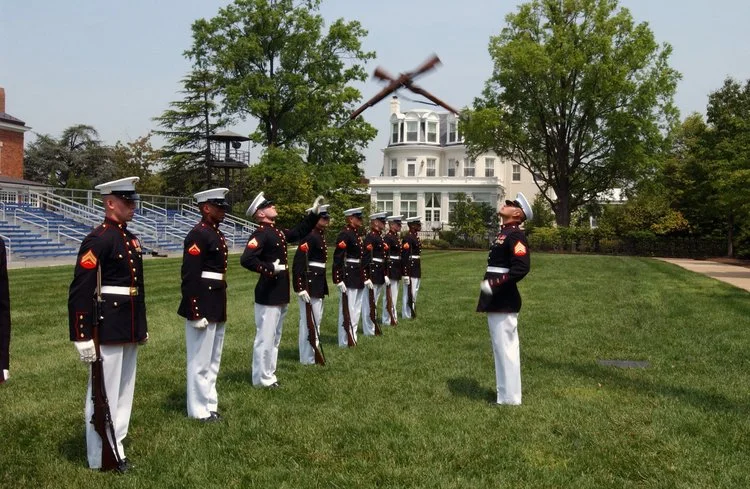The unflattering stereotype of Suzie-homemaker military wives who bake casseroles and follow their husbands wherever they go did not come from nowhere. It came from history. But times are changing, and I wonder, has our military culture kept up?
Historically, military marriages were a no-brainer. Young men in the service had dependable work and pay at a young age. They were heroic and masculine, and they were naturally bent toward protecting others.
This fit well with America’s long held view of women: nurturing, dependent and dedicated to being someone’s supporting cast.
America ate this stuff up. We promoted it (see Alfred Eisenstaedt’s famous “V-J Day in Times Square” photograph of a sailor and nurse kissing). No one questioned it, even. What 1940s red-blooded American wouldn’t love the idea of a dashing man in uniform and his pretty little wife?
From this mindset, the storied, old-school military wives club emerged: white gloves, calling cards, tea parties. And from these, America’s sometimes derogatory view of all military wives grew. But as recently as the 1970s, part of a military member’s work evaluation still included a category for his wife: Does she host parties? Is she supportive?
American women, it seemed, had come a long way, but military wives were held in the past.
Maybe military wives wanted to change, but how could they? Given what serving in the military requires, marriage to a service member all but guaranteed a life of dependency.
When I first because a military wife in 1999, it was still customary for people to urge us (“us” being new military brides) to consider careers that could travel. Nursing and teaching were touted as especially military friendly because they are somewhat transportable. It was deemed incompatible to be a lawyer or doctor and marry a man in the military. How could you work your way up in the practice or firm?
I’m sure military wives thought about the same things in the 1970s, except that back then, many women still weren’t considering careers as lawyers or doctors. A military marriage wasn’t yet detrimental to things like salary, retirement and professional fulfillment. The system still worked.
Today, however, women are gaining on men for the status of primary bread winner. Women are holding more high-level positions in companies. Their careers don’t always travel well. Their aspirations aren’t easily put on hold or set aside.
Our culture has tipped from one that automatically casts women as the homemaker wife to one that views successful, career-oriented women as a given.
In contrast, the military lifestyle has changed very little from the 1940s to now. Service members still make relatively decent pay at a young age. They still are heroic. And — here’s the biggie — they still move every few years.
This dilemma is creating new and increasing difficulties for military marriages. So far, the military hasn’t responded. I suppose they can’t. As my own military husband tells me, the military isn’t in the business of making marriages. Or, “If Uncle Sam had wanted service members to have a spouse, he would have issued them one.”
But as women make more money and have access to better jobs, they will be less able — and less willing — to follow a man wherever the military sends him. Whereas the uniform was once an asset for eligible men, now it could be a deal breaker.
And let’s not forget: nothing aids service retention like a happy wife.
Last year, my husband returned from a yearlong deployment overseas. When he came back, he was, of course, sent on a new military assignment — in a different state. We found ourselves up against the modern military dilemma: which spouse concedes to the other’s career?
We wondered, should I give up everything I’ve worked for and follow him? Or should he give up on a 16-year military career and stay with me?
The decision-making process was agonizing. There were no easy answers. Dustin is within years of retirement, and I’m finally on my way to building my own career, after a decade of following his.
Eventually, we came to a compromise: We’ll live in both places. We’ll maintain a house in one city, an apartment in the other, and we’ll commute back and forth. It isn’t ideal, but it allows us both to pursue our goals without being resentful of the other.
We aren’t alone. Many military families are making similar arrangements. In military-speak, we call it “geo-bach’ing.” But this is short-term solution; I can only agree to living in two cities at once for a single tour, not a whole career.
Luckily, because of Dustin’s retirement, our arrangement will be brief. There are plenty of young couples at the beginning of their careers who will meet these dilemmas with less room for compromise.
Is the military ready to address this new, evolving face of marriage?
I doubt it.
The institution has proven resistant to change. Service members will move every two to three years for decades to come. But the culture and the world around the military, especially as it pertains to women and familial roles, will continue to transform.
Military marriages, it seems, will have to adapt on their own.








